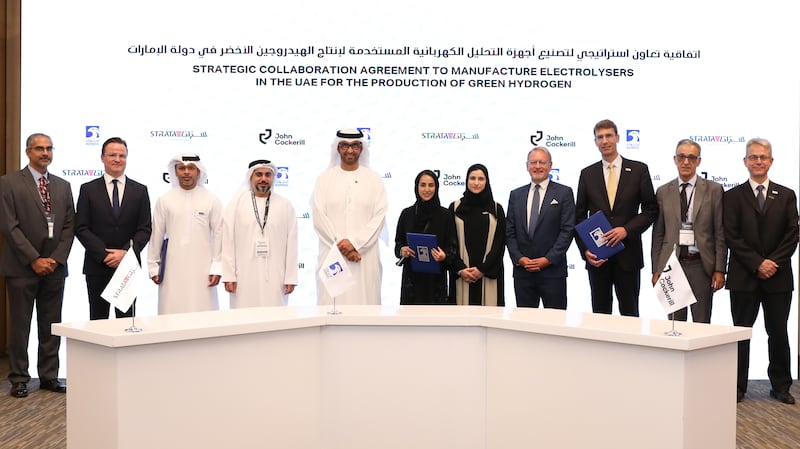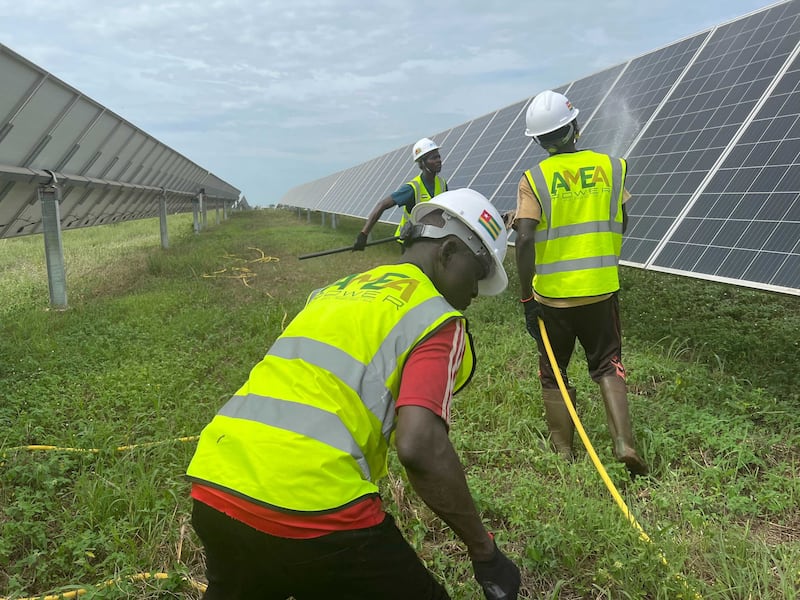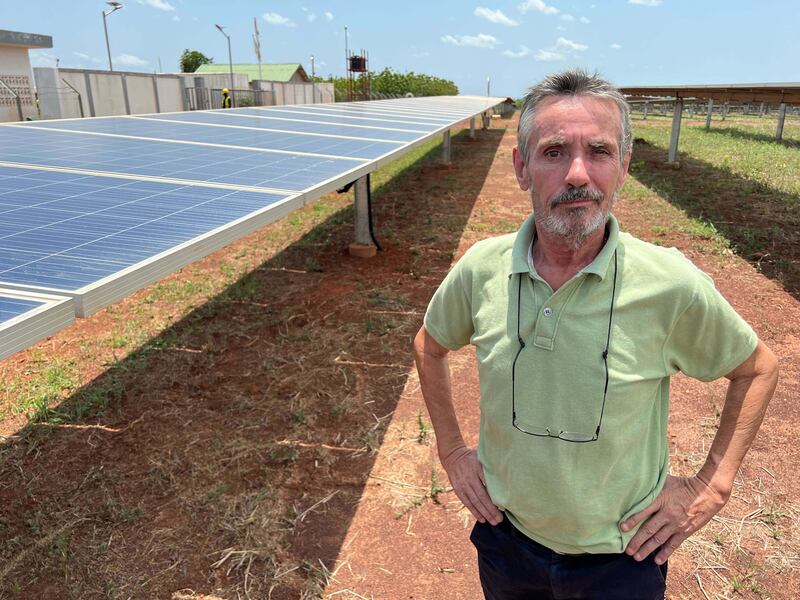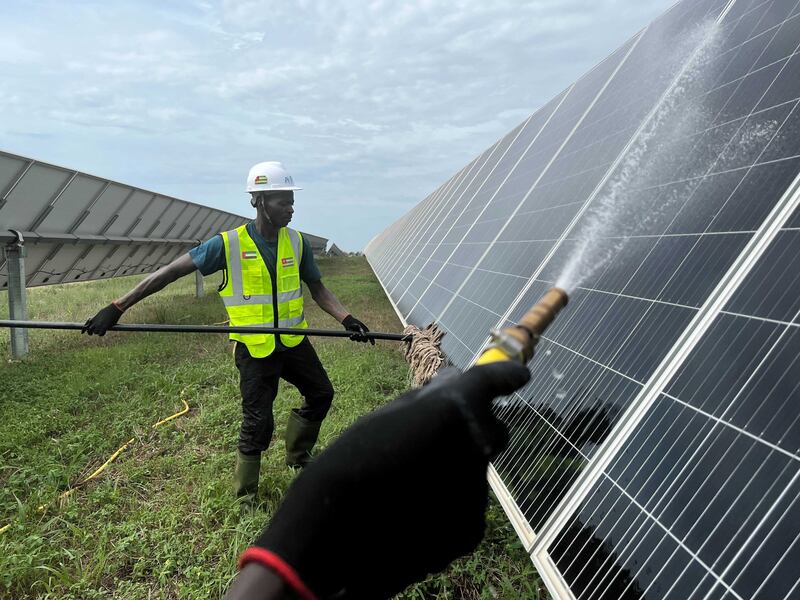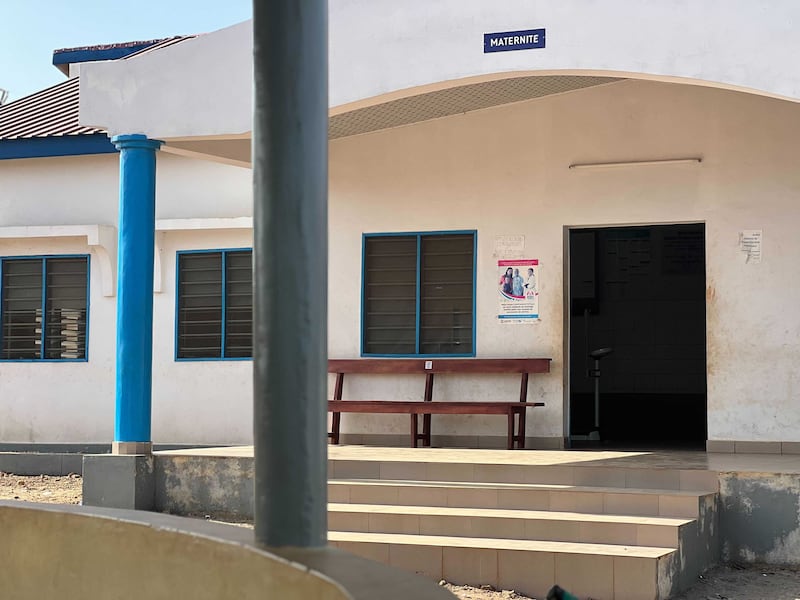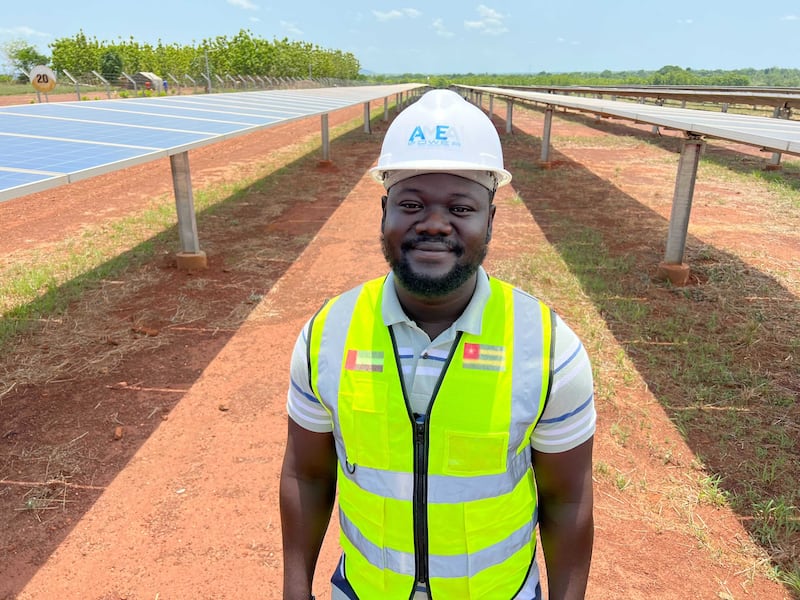Adnoc has signed an agreement with Strata and industrial machines manufacturer John Cockerill to manufacture electrolysers in the UAE for local use and export.
The deal is expected to help the development of the UAE’s green hydrogen economy through the local manufacturing of electrolysers, the Ministry of Industry and Advanced Technology said on Thursday.
Green hydrogen production involves water electrolysis, where an electrolyser uses electricity to separate water molecules into hydrogen and oxygen. This process enables the capture and storage of hydrogen, which can then be used as a fuel source.
“Accelerating the development of future industries is one of the main objectives of the National Strategy for Industry and Advanced Technology," said Omar Al Suwaidi, Undersecretary of the Ministry of Industry and Advanced Technology.
"Therefore, the ministry is committed to ensuring the national industrial sector benefits from innovative solutions and advanced technologies that support the expansion of future industries.
“Stimulating co-operation between leading national companies and international and local manufacturers is key to these efforts,” he said.
Hydrogen is expected to become a critical fuel as economies and industries transition to a low-carbon world.
French investment bank Natixis estimates that investment in hydrogen will exceed $300 billion by 2030.
The UAE is bullish about hydrogen and has been drawing up a comprehensive road map to position itself as an exporter of the clean fuel and tap into its future potential.
The Emirates is investing Dh600 billion ($163 billion) in clean and renewable energy projects over the next three decades as it aims to reach net-zero emissions by 2050.
“Hydrogen is a critical fuel in the energy transition and this agreement underscores how the energy sector can work with the industrial and hard-to-abate sectors to decarbonise at scale, drive low-carbon economic growth and enhance energy security,” said Hanan Balalaa, senior vice president, new energies and carbon capture, utilisation and storage, Adnoc.
“Adnoc will continue to advance lower-carbon solutions and decarbonisation technologies to strengthen our position as a responsible energy provider and support the UAE net zero by 2050 strategic initiative.”
The agreement will also support UAE efforts to boost localisation in the manufacturing sector.
In 2021, the UAE launched its industrial strategy Operation 300bn to position itself as a global industrial centre by 2031.
The 10-year comprehensive road map focuses on increasing the industrial sector's contribution to gross domestic product to Dh300 billion in 2031, from Dh133 billion in 2021.
“Strata’s expertise in advanced manufacturing will play a crucial role in establishing the UAE as a global hydrogen leader,” said Ismail Ali Abdulla, managing director and chief executive of Strata Manufacturing.
“This collaboration aligns with our strategic vision of driving innovation and economic growth in the UAE.”
Set up by Mubadala in Al Ain more than a decade ago to position the UAE in the global aerospace supply chain, Strata has billion-dollar contracts with Boeing, Airbus and Leonardo in Italy, in addition to Pilatus.
A surge in new manufacturing projects for key technologies including solar photovoltaic, batteries and electrolysers is driving global momentum in the world’s clean energy transition, according to a recent report by the International Energy Agency.
This growth is being driven by policy support and increased investor interest, the IEA said in its State of Clean Technology Manufacturing report this month.
The estimated output by 2030 for renewable energy technologies has risen since late last year, led by 60 per cent growth in solar PV, 25 per cent for batteries and 20 per cent for electrolysers, the agency said.
